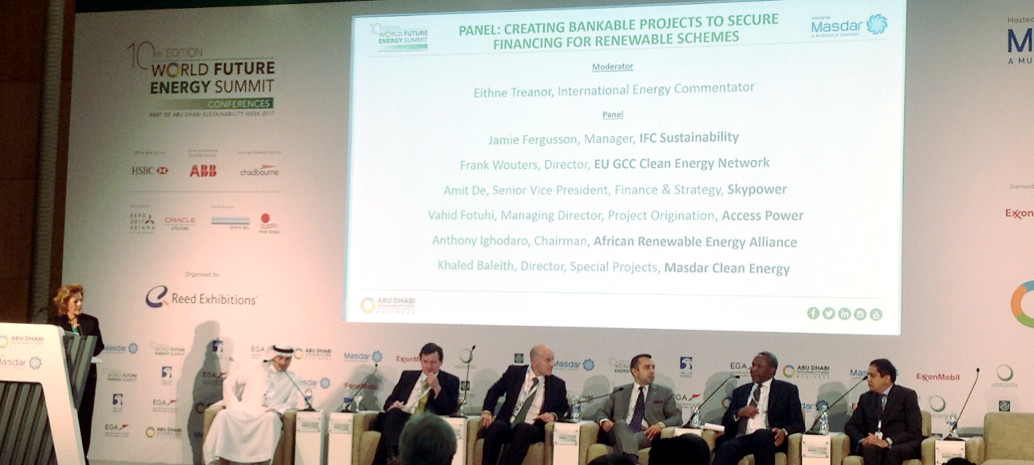Speaking recently at the Abu Dhabi Sustainability Week (ADSW), the International Energy Agency’s executive director Fatih Birol said that the global power sector needs to double its investment in renewable energies, if it is to meet the Paris Agreement climate goals.
However, financing renewable energy projects is a challenge, Adnan Amin, the director-general of the International Renewable Energy Agency (IRENA) added at the same panel. Specifically, Amin explained, the challenge is how to de-risk investments, since when the perceived risk is lower, financing will consequently become cheaper.
Discussing renewables financing at a separate occasion with a press team, that pv magazine was also part, Amin said that often there are funds but these do not come in the rate we (IRENA) like to see. Many financial institutions are not yet aware of what is happening in the sector, Amin argued.
Key to unlocking financing, Amin continued, is to lower the risks linked to renewable energy technology. Amin believes that current financing models do not address the technological improvement that has taken place. Therefore, technology risks and of course policy risks are key to mitigate current financing risks, concluded Amin. Policy risks include unstable and non-transparent regulatory environments.
Popular content
Africa
IEA and IRENA directors’ estimates for inadequate renewable energy financing currently were also reflected in the words of Amit De, senior vice president at Skypower, a developer and owner of utility-scale solar projects worldwide. De told a panel on Africa’s renewable energy development at the ADSW that “often, bankable projects do not have access in finance.”
Asked whether green bonds can be a solution to the financing challenge, De replied that this is only a partly solution because only a few countries can issue green bonds. Poor countries most often lack the credibility needed to launch green bonds, De argued.
Frank Wouters, director at the Clean Energy Network of the European Union and the Gulf Cooperation Council, added that although in many places in Africa there is a currency issue for the local banks, still he often gets disappointed with local banks (e.g. in Nigeria) because they need to be forced to participate in the financing of local renewable energy projects. Wouters would like to see local banks being more eager to learn and participate in the financing process.
This content is protected by copyright and may not be reused. If you want to cooperate with us and would like to reuse some of our content, please contact: editors@pv-magazine.com.


By submitting this form you agree to pv magazine using your data for the purposes of publishing your comment.
Your personal data will only be disclosed or otherwise transmitted to third parties for the purposes of spam filtering or if this is necessary for technical maintenance of the website. Any other transfer to third parties will not take place unless this is justified on the basis of applicable data protection regulations or if pv magazine is legally obliged to do so.
You may revoke this consent at any time with effect for the future, in which case your personal data will be deleted immediately. Otherwise, your data will be deleted if pv magazine has processed your request or the purpose of data storage is fulfilled.
Further information on data privacy can be found in our Data Protection Policy.